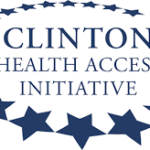Overview of Role:
CHAI is seeking a highly motivated individual with public health experience and demonstrated skills in epidemiological data analysis to plan and conduct analyses of malaria and NTD data, translate results to inform decisions, communicate methods and findings with the malaria and NTD programs and partners, and support programs to strengthen routine data review activities. The individual will collaborate with a diverse team based across multiple countries in CHAI’s Global, Regional and Country Malaria and NTD Teams, as well as with government programs, academic partners and public health agencies. The successful candidate will possess strong communication and organizational skills; be imaginative, pragmatic, and innovative in applying epidemiological expertise to improve real-world health programs; work independently to drive implementation; and have deep personal commitment to producing results.
Flexible to be based in countries across East and Southern Africa, pending approval from country leadership
Responsibilities
Regional analytics support (70%)
- Work with CHAI teams, national malaria and NTD programs, and partner organizations to identify analytical needs to inform country and regional decisions and strategies
- Develop data analysis plans to ensure analyses address priority questions, including specifying research questions, identifying data needs, and determining appropriate methodologies
- Conduct analyses of malaria and NTD data, including retrospective epidemiological assessments, impact evaluations, optimizing intervention packages, and quantifying contribution of drivers of transmission such as rainfall and importation
- Translate findings into recommendations on programmatic decisions, including on where to prioritize resources, which interventions to implement, and how to deploy interventions to optimize coverage, efficiency, and impact of available resources
- Liaise with academic partners to discuss methods and outputs of advanced analytics (e.g., risk mapping, mathematical modelling) led by these partners, including identifying potential use cases, communicating program priorities, sharing feedback on outputs, and linking outputs to broader strategic discussions
- Clearly communicate analytical outputs, including methodology, certainty, and recommendations, with malaria and NTD programs and partners
- Monitor and evaluate how analytical outputs are used to inform decisions and compare against previous strategies to understand impact and cost-effectiveness of proposed decisions
- Document results and recommendations in reports to be shared with programs and partners
Regional data review and surveillance support (30%)
- Work closely with CHAI country teams and malaria and NTD programs to monitor and respond to epidemiological data
- Provide recommendations to enhance forums for review and use of epidemiological data, such as data review meetings, outbreak investigations, campaign monitoring meetings, and data quality assessments, and provide direct support to these forums as needed
- Strengthen data review tools such as dashboards and action plan templates
- Provide technical review and guidance on data analysis and use workstreams across the region
- Support malaria and NTD programs to monitor and strengthen surveillance systems by supporting surveillance assessments, data quality audits, review of surveillance indicators, and surveillance trainings
- Support development, integration, and institutionalization of malaria and NTD information systems with an emphasis on the integration of data use and analysis in routine programmatic activities, including reviewing and developing data collection tools, dashboards and data use guidelines
- Help cultivate a culture of data-use within malaria and NTD programs by training CHAI and program staff on analysis of epidemiological, entomological, and programmatic data and using data to inform country strategy planning and program implementation
- Develop and maintain strong working relationships with CHAI country and regional teams, key stakeholders across government, non-governmental organizations, and academic institutions
- Document lessons learned and best practices on data review and use for cross-country exchange and knowledge management
- Any other tasks identified.
Qualifications
- Master’s degree in Public Health, Epidemiology or related field
- 2+ years of working experience, including in the analysis of epidemiological data and supporting public health decision making
- Knowledge of malaria, NTDs, and/or other major global infectious disease problems and an understanding of epidemiological, statistical, and spatial analysis methods
- Strong project management skills, including the ability to plan, execute, and monitor multiple projects simultaneously, ensuring timely and high-quality deliverables
- High levels of proficiency in at least one statistical analysis program (e.g., R, Stata, Python, SAS)
- Experience using mapping and/or geospatial analysis software (e.g., ArcGIS, qGIS, R)
- High levels of proficiency in Microsoft Word, Excel, PowerPoint
- Experience working and communicating with government officials and other external partners
- Enthusiasm for applying research methods to solve global health problems focusing on malaria and NTDs and/or other major global infectious disease concerns
- Ability to work independently in remote and unstructured settings and to adapt to new environments and challenges
- Ability to collaborate and operate as part of a multi-cultural team
- Exceptional written and oral communication skills
- Willingness to travel (50% of time)
- Fluent in English.
Advantages:
- Knowledge of Portuguese language highly desirable
- Experience in monitoring and evaluation of surveillance systems and/or public health programs
- Experience in programming (e.g., Python, JavaScript), working with surveillance platforms (e.g. DHIS2), data collection tools (e.g. ODK and Survey CTO) and/or data visualization applications (e.g., Tableau, PowerBI, Metabase)
- Experience working in fast-paced, output-oriented environments
- Experience working with a decentralized team.









